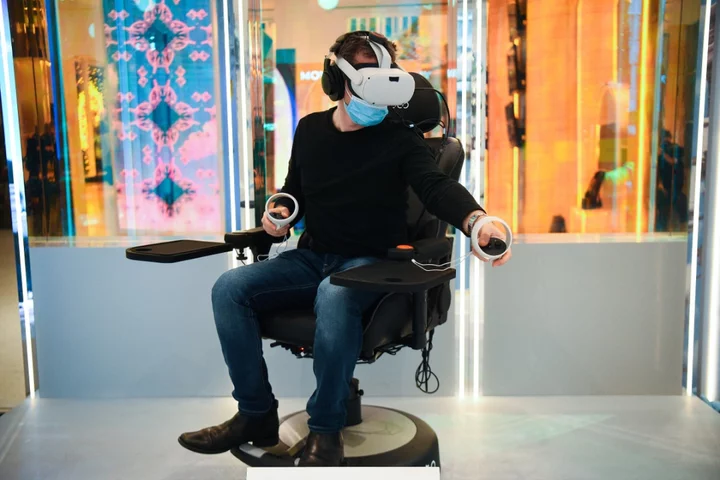Offenders are using virtual reality (VR) to groom and sexually abuse children, as well as share illegal images of abuse, according to new research from the NSPCC.
A report commissioned by the children’s charity on VR and immersive technologies said the online spaces at the heart of the technology are being used by offenders to not only interact with children, but also to simulate acts of abuse.
It warned that offenders are being desensitised to their own behaviour because of the anonymity such spaces provide through their use of customisable, digital avatars to represent each person present, which the report said offenders are using to hide behind.
Virtual reality platforms are based around a person wearing a headset, which immerses them in a virtual world where they can see and interact with other users as well as consume content, and is seen by some as the next iteration of the internet.
However, the study warned that these VR worlds invite the creation of tighter-knit offender communities, which could be used to share child sexual abuse material and lead to an escalation in harmful behaviours.
These shocking findings should be a wake-up call to us all about the harm young people are facing when engaging with immersive technology
Richard Collard, NSPCCIn response, the NSPCC has called on tech firms to do more to ensure virtual reality platforms are safe by design by introducing better child safety features and reporting systems.
It has also called on the Government to provide more guidance, funding and learning opportunities to law enforcement on how to deal with virtual reality platforms.
And with the Online Safety Bill due to continue its passage through Parliament this week, the charity said the Government should review the Bill’s safety regime on a regular basis to ensure that it keeps up with emerging technologies and harms to make sure they are adequately covered under the law.
Richard Collard, head of child safety policy at the NSPCC, said: “These shocking findings should be a wake-up call to us all about the harm young people are facing when engaging with immersive technology.
“Technology will continue to progress, and so must we to ensure that we can understand the existing and emerging risks that young people face in these virtual spaces.
“As the Online Safety Bill completes its passage through Parliament, it is vital that new and emerging technology forms a crucial part of the online safety regime.
“This will only be made possible through clear collaboration between educators, parents, policymakers, and the technology industry.”
Earlier this year, crime statistics data obtained from police forces in England and Wales by the NSPCC showed that virtual reality was recorded eight times in crime reports, the first time the technology has been specifically mentioned, the charity said.
Read MoreCharity boss speaks out over ‘traumatic’ encounter with royal aide
Ukraine war’s heaviest fight rages in east - follow live
Russian cyber-attacks ‘relentless’ as threat of WW3 grows, expert warns
Warner Music sign first digital character Noonoouri and release debut single
Met should thoroughly investigate cyber security practices, say experts









